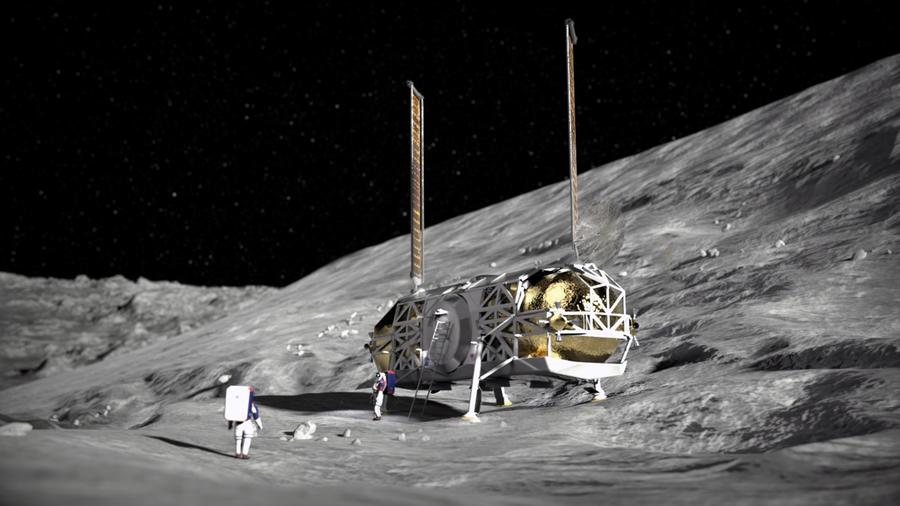How small businesses are helping NASA return to the moon
Leidos has teamed with more than 150 small businesses to develop a landing system. Illustration: Leidos
As the global economy slows in 2023, space exploration could become a new area of growth for small aerospace businesses.
Case in point, Dynetics—a Leidos subsidiary in Huntsville—has recruited small businesses to help achieve NASA's mission for its return to the moon.
What you should know: Through its Artemis program, NASA plans to return humans to the moon's surface as soon as 2025.
In June, the organization is planning to announce an award for Sustaining Lunar Development for a Human Landing System (HLS) that will safely carry astronauts to the moon and back.
Dynetics has teamed with more than 150 small businesses to develop a landing system. These small businesses provide everything from flight hardware components and 3D printing to ground support equipment and test services.
For example: Dynetics has Sophic Synergistics, a small business based in Houston, Texas, leading its human systems integration efforts. Craig Technologies, based in Merritt Island, Florida, will provide pneumatic and electrical equipment for ground testing and ground systems for flight.
How it works: Unlike NASA's previous crewed lander, the lunar module (LM) will be capable of landing at locations across the whole moon. NASA has targeted the lunar South Pole initially, but future missions may reach many other points of interest for science and exploration. The Dynetics lander will serve as a taxi to and from these sites, meaning it will need to sit, ready to go, for weeks at a time. Plus, unlike the LM, the new ship will be reusable.
The Dynetics team is working with small businesses to minimize design complexity, mass, cost and development time.
From the source: “We've had small businesses as a central part of our team since we started," says Andy Crocker, HLS program manager at Dynetics. “They have expertise in niche areas that can be hard to find elsewhere, particularly for space programs."
He says small businesses can often achieve more than bigger competitors. “They are not typically as vested in traditional ways of doing business as large companies—which enables them to come up with some of the most impactful technologies and important breakthroughs."
The latest: After completing initial design and testing work on its HLS for NASA, Dynetics is gearing up for the next step: building the vehicle.
Looking ahead: “It's not about footprints," Crocker says. “It's about foundations. We're establishing the foundation for the future of exploration."
He says small businesses will play a starring role for the foreseeable future. “Small businesses enable responsiveness and agility that large businesses typically can't match," he says. “With today's greater need for speed, small businesses will continue to be critical to program execution."
Please contact the Leidos media relations team for more information.

